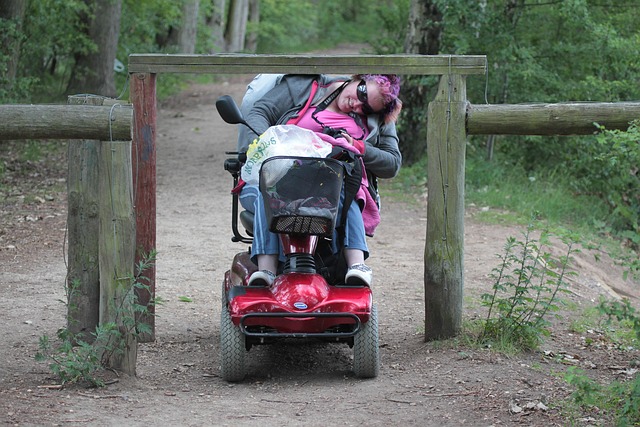Eugene, Oregon, grapples with inadequate accessible transportation options for disabled individuals and seniors, particularly regarding wheelchairs and assistive devices. To address this, the city aims to revolutionize its transport system through expanded paratransit services, physical adaptations like ramps and low-floor buses, staff training, and inclusive policies. These efforts strive to make all forms of public transport in Eugene Oregon wheelchair accessible, catering to diverse needs and fostering an inclusive community where mobility is no longer a barrier.
“In Eugene, Oregon, enhancing transport access for disabled residents is not just a matter of convenience; it’s a crucial step towards fostering an inclusive community. This article delves into the current challenges faced by individuals with disabilities, exploring the barriers to mobility in Eugene. We propose strategic solutions and innovative ideas to improve accessibility, focusing on better paratransit services, wheelchair-friendly infrastructure, and inclusive policies. By implementing these measures, Eugene can become a leader in providing equal transport opportunities for all, ensuring a more connected and accessible future.”
- Current Transportation Challenges Faced by Disabled Individuals in Eugene, Oregon
- Enhancing Accessibility: Strategies and Solutions for Better Transport Services
- The Way Forward: Implementing Inclusive Transport Policies and Infrastructure for All
Current Transportation Challenges Faced by Disabled Individuals in Eugene, Oregon

In Eugene, Oregon, disabled individuals often encounter significant challenges when it comes to transportation. Despite efforts to promote accessible transportation, many public transit options struggle to cater to the diverse needs of the disability community. This is particularly evident for those who rely on wheelchairs or other assistive devices, as the current fleet may lack necessary modifications like ramp access and secure seating. The lack of wheelchair-accessible buses and trains leaves many residents with limited mobility stranded, hindering their ability to access employment, healthcare, and social services independently.
Senior citizens with disabilities are also affected, facing barriers in navigating the city due to a lack of specialized paratransit services tailored to their needs. The existing paratransit systems often have strict eligibility criteria and limited schedules, making it difficult for seniors to engage in community activities and maintain their independence. An inclusive transport system that guarantees equal access for all, regardless of disability or age, is essential to foster social inclusion and enhance the quality of life for residents in Eugene, Oregon.
Enhancing Accessibility: Strategies and Solutions for Better Transport Services

Enhancing accessibility in transport is a multifaceted approach that involves strategies tailored to meet the diverse needs of disabled individuals, seniors, and those using wheelchairs in Eugene, Oregon. The city has been actively working on improving its transportation infrastructure and services to create a more inclusive environment. One key solution is the development and expansion of paratransit services specifically designed for those with limited mobility. These services ensure that individuals who cannot use traditional public transport due to disabilities or age-related issues can still access mobility options.
Additionally, making existing bus routes and stations wheelchair accessible is a priority. This includes installing ramps, low-floor buses, and dedicated spaces at bus stops. Such physical modifications not only facilitate easier travel for wheelchair users but also promote a sense of independence and social inclusion. The city’s commitment to providing an inclusive transport network is further strengthened by regular training for transit operators and staff on disability awareness and assistance, ensuring that all passengers receive respectful and competent service.
The Way Forward: Implementing Inclusive Transport Policies and Infrastructure for All

To ensure that everyone in Eugene Oregon—including individuals with disabilities, seniors, and those using wheelchairs—enjoys accessible transportation, it is imperative to move forward with inclusive transport policies and infrastructure development. This involves integrating paratransit services seamlessly into the existing public transit system, ensuring every vehicle and station are wheelchair accessible, and providing clear signage and dedicated drop-off points for all users.
The city can foster a more inclusive environment by promoting awareness and training for transportation providers and the general public on how to assist those with disabilities. Additionally, implementing dynamic routing systems that consider real-time traffic data and accessibility constraints can significantly enhance efficiency and convenience for everyone. By adopting these measures, Eugene Oregon can become a leader in providing equal transport access, fostering a more inclusive community where mobility is no longer a barrier.
